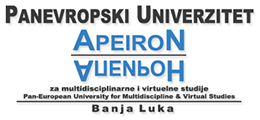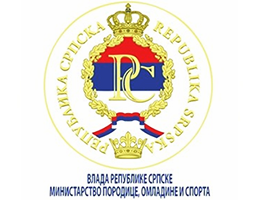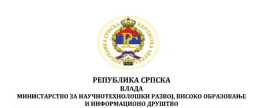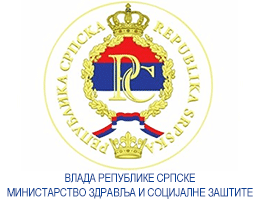The Influence Of The Experimental Program Of The Sport Recreation On The Transformations Of The Morphological Characteristictics, Motoric And Functional Abilities
Volume 1, Issue 1 (2011)
Volume 1, Issue 1 (2011)
The Influence Of The Experimental Program Of The Sport Recreation On The Transformations Of The Morphological Characteristictics, Motoric And Functional Abilities
Abstract:
The research has been carried out on the sample of 300 examinees – workmen of the metal industry „ Jelsingrad“ of Banja Luka, at the age between 20 and 40. The sample was divided into two groups of 150 examinees each (experimental and control group). There has been applied 6 variables of morphological characteristics, 6 variables of motoric abilities and 6 variables of functional abilities.
The main purpose of the research has been to establish the effects of experimental program of the sport recreation on the transformations of morphological characteristics, motoric and functional abilities of the workmen of the metal industry „Jelsingrad“ of Banja Luka.
In order to find out the effects of the experimental program of the sport recreation on the transformations of the morphological characteristics, motoric and functional abilities, the results were presented of the basic stastistic parameters and multivariant importance of differences in the system of variables of the experimental and control group in the initial and final measurement.
With the analysis of the results achieved it can be concluded that the applied experimental program produced the statistically important transformations almost in all the applied variables at the experimental group in the final measurement in relation to the control group.
The main purpose of the research has been to establish the effects of experimental program of the sport recreation on the transformations of morphological characteristics, motoric and functional abilities of the workmen of the metal industry „Jelsingrad“ of Banja Luka.
In order to find out the effects of the experimental program of the sport recreation on the transformations of the morphological characteristics, motoric and functional abilities, the results were presented of the basic stastistic parameters and multivariant importance of differences in the system of variables of the experimental and control group in the initial and final measurement.
With the analysis of the results achieved it can be concluded that the applied experimental program produced the statistically important transformations almost in all the applied variables at the experimental group in the final measurement in relation to the control group.
Keywords:
morphological characteristics, motoric and functional abilities, workmen
Full Text:
References:
- Astrand, P. (1971): Kondicija i zdravlje, Beograd, Sport idok centar, JZFK.
- Bijelić, B. (2004): Teorija sa osnovama metodike sportske rekreacije, Nikšić.
- Blagajac, M. (1984): Programirane sportsko – rekreativnih aktivnosti za vozače gradskog saobraćaja u funkciji povećanja bezbjednosti saobraćaja, Vrnjačka Banja, Referat na V simpozijumu „preventiva u bezbjednosti saobraćaja na putevima“.
- Blagajac, M. i saradnici (1987): Uticaj programiranog aktivnog odmora na zdravlje, radnu sposobnost i produktivnost, Novi Sad.
- Blagajac , M. i saradnici (1984): Struktura časa sportske rekreacije, Beograd.
- Blagajac, M., Dimitrijević, B. Đurić, Đ. i dr. (1981): Praćenje obima i intenziteta opterećenja u toku različitih modela sportsko – rekreativnih aktivnosti na času sportske rekreacije, Novi Sad, Fakultet fizičke kulture (elaborat naučno istraživačkog projekta).
- Hadžikadunić, M.( 1998): Uticaj programiranog vježbanja na neke antropometrijske motoričke i funkcionalne sposobnosti, Homo sportikus, vol. 1, Fakultet za fizičku kulturu, Sarajevo.
- Ismail, A.H. (1978): Efekti organizovanog rekreativnog programa na fizičko i emocionalno zdravlje, Beograd, časopis Fizička kultura str. 143-144.
- Jašarević, Z. (2000): Nivo motoričkih sposobnosti u odnosu na obim svakodnevne kretne aktivnosti i morfološke odlike učenika 15-16 godina, Magistarski rad, Filozofski fakultet, Tuzla.
- Jovičić, Ž. (1986): Teorijske osnove rekreacije, Beograd.
- 1Krsmanović, R. (2003): Teorija sportskog treninga, Srpsko Sarajevo.
- Mikalački, M. (1995): Modeli programa sportske rekreacije aerobne usmjerenosti, Komotini.
- Mikalački, M. (2000): Teorija i metodika sportske rekreacije, Novi Sad. Savovski, M. (2001): Osnovi na sportskata rekreacija, Skopje, Univerzitet „Sv. Kiril i Metodij“.






